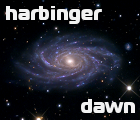|
SpaceEngine Planet Classifications
|
|
| Proteus | Date: Thursday, 20.06.2013, 19:39 | Message # 181 |
|
Explorer
Group: Users
 United States
United States
Messages: 173
Status: Offline
| Even with the planet's classes and the default assumptions of chemical make up based on the class label, will there be any wiki information eventually for the planets, etc, elaborating the different chemicals and the such anyway?

|
| |
| |
| HarbingerDawn | Date: Thursday, 20.06.2013, 20:29 | Message # 182 |
 Cosmic Curator
Group: Administrators
 United States
United States
Messages: 8717
Status: Offline
| Quote (Proteus) eventually
Yes
All forum users, please read this!
My SE mods and addons
Phenom II X6 1090T 3.2 GHz, 16 GB DDR3 RAM, GTX 970 3584 MB VRAM
|
| |
| |
| Joey_Penguin | Date: Thursday, 20.06.2013, 20:30 | Message # 183 |
 Pioneer
Group: Users
 United States
United States
Messages: 311
Status: Offline
| Quote (SpaceEngineer) This classification have no clear system.
It groups planets, moons, and asteroids based on mass, composition, and geologic activity.
EDIT:
This isn't quite a classification system, but it may help with making things more scientifically accurate.
Careful. The PLATT Collective has spurs.
Edited by Joey_Penguin - Friday, 21.06.2013, 19:19 |
| |
| |
| smjjames | Date: Thursday, 20.06.2013, 20:50 | Message # 184 |
|
World Builder
Group: Users
 United States
United States
Messages: 913
Status: Offline
| Quote (Joey_Penguin) Quote (SpaceEngineer)
This classification have no clear system.
It groups planets, moons, and asteroids based on mass, composition, and geologic activity.
It also has some types based on water coverage, age, and where they are in some sort of cycle.

|
| |
| |
| NovariusKamron | Date: Sunday, 25.08.2013, 00:03 | Message # 185 |
|
Observer
Group: Newbies
 United States
United States
Messages: 1
Status: Offline
| And even position... Though some of the names maybe a bit confusing. It was a wonderful started point. Just rename them and you have a pretty much complete planet list.
|
| |
| |
| popo | Date: Tuesday, 27.08.2013, 15:40 | Message # 186 |
|
Observer
Group: Newbies
 Italy
Italy
Messages: 6
Status: Offline
| May be this classification type:
http://arcbuilder.home.bresnan.net/PCLMaster.html
it's pretty accurate, in fact i'm using it for my own encyclopedia of planets i found in the program (sorry for the bad english)
|
| |
| |
| QuietlyConident | Date: Tuesday, 27.08.2013, 16:19 | Message # 187 |
|
Astronaut
Group: Users
 United Kingdom
United Kingdom
Messages: 54
Status: Offline
| Hey popo, that Planetary classification was last mentioned one page ago, and has been discussed many times!
|
| |
| |
| popo | Date: Tuesday, 27.08.2013, 16:34 | Message # 188 |
|
Observer
Group: Newbies
 Italy
Italy
Messages: 6
Status: Offline
| oops, sorry, i did not have much time to read in these days so i posted what i had...
|
| |
| |
| Jonahrf | Date: Sunday, 29.12.2013, 19:44 | Message # 189 |
|
Space Tourist
Group: Users
 United States
United States
Messages: 39
Status: Offline
| Is there anyway how I can modify the planet types?
|
| |
| |
| apenpaap | Date: Sunday, 29.12.2013, 19:46 | Message # 190 |
 World Builder
Group: Users
 Antarctica
Antarctica
Messages: 1063
Status: Offline
| No, none as far as I know.
I occasionally stream at http://www.twitch.tv/magistermystax. Sometimes SE, sometimes other games.
|
| |
| |
| Voekoevaka | Date: Sunday, 29.12.2013, 20:13 | Message # 191 |
 World Builder
Group: SE team
 France
France
Messages: 1016
Status: Offline
| You can tweak the names on "eng-gui.cfg".
Want some music of mine ? Please go here !

|
| |
| |
| HarbingerDawn | Date: Sunday, 29.12.2013, 20:55 | Message # 192 |
 Cosmic Curator
Group: Administrators
 United States
United States
Messages: 8717
Status: Offline
| Quote Voekoevaka (  ) You can tweak the names on "eng-gui.cfg"
There is no such file; the English localization is built into the SpaceEngine executable. If you want to modify the English, you have to do it as a separate localization.
All forum users, please read this!
My SE mods and addons
Phenom II X6 1090T 3.2 GHz, 16 GB DDR3 RAM, GTX 970 3584 MB VRAM
|
| |
| |
| AiioFlux | Date: Monday, 06.01.2014, 03:29 | Message # 193 |
 Space Tourist
Group: Users
 United Kingdom
United Kingdom
Messages: 32
Status: Offline
| I still get irked by some of these classifications when they say things like "warm ice giant" and things. Although of course we may not be talking about water, does it really make sense to say things like 'hot', 'warm' and such? What exactly is 'warm'? On what scale? Compared to human experience?
Could planets eventually go through phases and so change as time progresses and so maybe this could be used in the classification system. E.g.
-Young, volatile terrestrial (like the early earth, all volcanic and fluid)
-Young stabilising terrestrial (cooling and solidifying, if applicable)
-Stable terrestrial (like earth now with relatively 'permamnent' features, oceans etc only changing over long perieods of time)
-Unstable terrestrial (a planet thats been around for ages but is all molten constantly for example)
-Aging, stable / unstable terrestrial (losing it's atmosphere or whatever)
-old, solidified / fractured / dead planet husk (does this happen?)
This is just an example to crudely explain what I mean. I think what I'm basically suggesting is that rather than fumbling with these static terms to describe one 'place' within a spectrum of possible combinations, it would be more descriptive and intuitive to understand if the classification system was a label constructed of a small number of 'parts' determined by the bodies properties. For example with terrestrial (solid) planets as above
Age | State | Atmosphere | Additional
Where for example:
Age = New, Young, [Mid], Aging, Dying / Fading, Dead
State = Volatile, Stabilising, Stable / Unstable, Destabilising, Destabilised / Unstable
Atmosphere = Without, Minimal / Thin, Medium, Thick
Additional = With Life (+details of life), Temp (K), anything else
, with Oceanias (or 'Water Worlds' as I understand them to be more well known as, though I do think the word Oceania is very nice however perhaps this is only relavent if it is water whereas we might have one of liquid mercury is this the idea?) for example it could be a bit different, still including age but like
Age | Main Composition | Atmosphere | Additional
"Young, Metal Oceania with Thick Atmosphere avg. 230 K [with Life]"
The main categories could have their own relevant label sets so thats: terrestrials (which as I see it would include all rocky planets with or without atmosphere and I also think maybe even 'frozen' planets), Oceanias, Gas Giants, Asteroids.
Not that many.
And if we were to distinguish frozen planets from rocky ones based on say the fact that there were primarily large sheets of one material / compound in stasis as opposed to a mixture like land on earth then it could just be called something like 'Freezer'?
Perhaps it would also make sense to classify as an additional somewhere 'satellite'.
Although it may seem clunkier as it's longer, this way we would have a dynamic system which is sirectly descriptive of the body, even if it changes over time. One could see how it's classification has changed over time perhaps by sending a request to plot where the individual parts of the label flicked over.
Does that make sense? Of course, I am assuming that planets and bodies will be new, age and die over time eventually...
Edit:
Another factor could be size. For example do we thnk it's possible gas planets might not always be giants? PErhaps the info tiny, small, [mid / avg], giant, behemoth could be used? Just a thought!
Edited by AiioFlux - Monday, 06.01.2014, 03:32 |
| |
| |
| HarbingerDawn | Date: Monday, 06.01.2014, 04:07 | Message # 194 |
 Cosmic Curator
Group: Administrators
 United States
United States
Messages: 8717
Status: Offline
| Quote AiioFlux (  ) What exactly is 'warm'?
For SpaceEngine, temperature scales are broken up as follows:
Scorched - > 800 K
Hot - 400-800 K
Warm - 300-500 K
Temperate - 250-300 K
Cool - 200-250 K
Cold - 100-200 K
Frozen - <100 K
The temperatures are not relative to anything except each other, they exist only as a way to describe relative temperature using familiar language (which was particularly difficult for English as you can see by reading the discussion earlier in the thread).
As for having a more complex classification system than exists at present, having one that actually made sense and was useful would require modeling of the planet interior and composition, which is not supported yet. Currently SE planets are classified only by surface environment (except for gas worlds, which are classified primarily by mass). And the names "gas giant" and "ice giant" are not arbitrary, they are actually used in astronomy to describe Jupiter- and Neptune-type worlds, respectively, for valid and descriptive physical reasons.
All forum users, please read this!
My SE mods and addons
Phenom II X6 1090T 3.2 GHz, 16 GB DDR3 RAM, GTX 970 3584 MB VRAM
Edited by HarbingerDawn - Monday, 06.01.2014, 04:11 |
| |
| |
| Exognosis | Date: Wednesday, 21.05.2014, 17:00 | Message # 195 |
 Space Tourist
Group: Users
 Portugal
Portugal
Messages: 39
Status: Offline
| I might have arrived ridiculously late to the discussion, but SpaceEngineer once mentioned that he wasn't happy with the term Frozen. May I suggest Frigid? It doesn't imply ices, just a very very low temperature.
http://exognosis.tumblr.com - Space travel logs by Captain Mirowe aboard the S. E. Exognosis.
Edited by Exognosis - Wednesday, 21.05.2014, 17:02 |
| |
| |